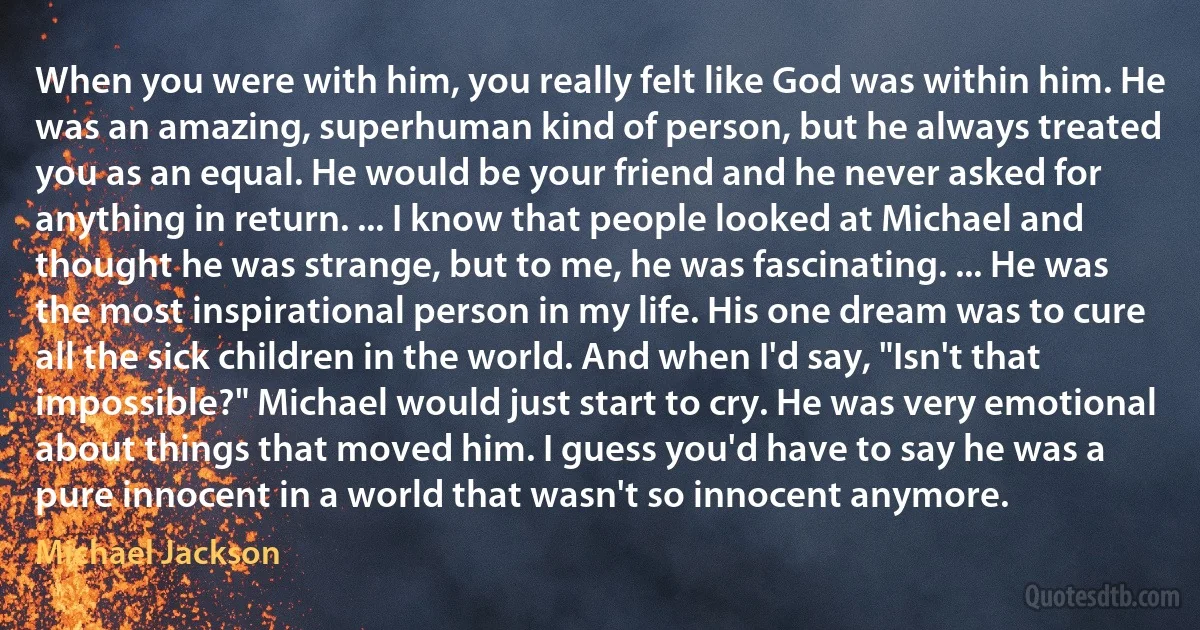Superhuman Quotes - page 4
Whether it be the sweeping eagle in his flight, or the open apple-blossom, the toiling work-horse, the blithe swan, the branching oak, the winding stream at its base, the drifting clouds, over all the coursing sun, form ever follows function, and this is the law. Where function does not change form does not change. The granite rocks, the ever brooding hills, remain for ages; the lightning lives, comes into shape, and dies in a twinkling.
It is the pervading law of all things organic and inorganic, of all things physical and metaphysical, of all things human and all things superhuman, of all true manifestations of the head, of the heart, of the soul, that the life is recognizable in its expression, that form ever follows function. This is the law.

Louis Sullivan
If by this superhuman concentration one succeeded in converting or resolving the two cosmoses with all their complexities into sheer ideas, he would then reach the causal world and stand on the borderline of fusion between mind and matter. There one perceives all created things - solids, liquids, gases, electricity, energy, all beings, gods, men, animals, plants, bacteria - as forms of consciousness, just as a man can close his eyes and realize that he exists, even though his body is invisible to his physical eyes and is present only as an idea. (Chapter 43 - "The Resurrection Of Sri Yukteswar")

Paramahansa Yogananda
One might think that a period which, in a space of fifty years, uproots, enslaves, or kills seventy million human beings should be condemned out of hand. But its culpability must still be understood... In more ingenuous times, when the tyrant razed cities for his own greater glory, when the slave chained to the conqueror's chariot was dragged through the rejoicing streets, when enemies were thrown to the wild beasts in front of the assembled people, the mind did not reel before such unabashed crimes, and the judgment remained unclouded. But slave camps under the flag of freedom, massacres justified by philanthropy or by a taste for the superhuman, in one sense cripple judgment. On the day when crime dons the apparel of innocence - through a curious transposition peculiar to our times - it is innocence that is called upon to justify itself.

Albert Camus
I especially respected and admired Clemente, who later became one of my best friends. Roberto was superhuman on the ball field. He played right field with the grace and style of a ballet dancer. His agility and strength enabled him to perform plays some fans thought to be impossible. But he was also an intensely fierce warrior who played each game as if it were his last.

Roberto Clemente

